Ariane Todes delves into The Strad Archive and discovers conflicting views of the great cellist
Since my trip to Los Angeles for the Piatigorsky Festival, and my total immersion in the work of his former students and devotees, I’ve developed a little obsession with the great cellist. This has inevitably led me to track him down in The Strad Archive.
Unfortunately, there aren’t any contemporary interviews with him (far be it for me to criticise any of my predecessors, but – really!). The closest we get is in 1939, with a reference to a hilarious interview in the Daily Telegraph where he describes his escape from Russia:
‘Although Piatigorsky very nearly lost his life in this adventure the incident was not without its humorous side. It will be noticed that at that time Piatigorsky’s command of English was not so good as it is today, but we feel his original version should be spared the hand of an arranger: “When the Bolshevik Revolution breaks out I am a boy; everyone is running away, so I take my ‘cello and with musical companions we go to the frontier in a cow’s railway carriage. On the way we perform for the Red soldiers. We have a hall, packed with soldiers, no room left. We play for them – beautiful Debussy, thing like that. At the end only two of the audience remains. I do not think they understand Debussy.” The fugitives reached a village on the Polish border, closely watched by Red Guards. To resume in Piatigorsky’s own words: “On night we go across the border. I carry my ‘cello over my shoulder. Suddenly bing-bang-bang! Two soldiers shoot to us. My health remains goods, but my poor ‘cello – finished.” “Did the shots hit it?” he was asked. “No, no. There is with us a lady opera songer. She is very awfully fat. As she hears the bangs she jumps up on my shoulders and puts her big arms round my neck… my ‘cello is no more.”
Then there are some reviews – this from 1937, with rather a dig at other cellists:
‘Pride of place this month must go to the ‘cellists Piatigorsky and Casals. First, in order of time, came Gregor Piatigorsky, who played two comparatively rare works, the Boccherini Concert on B flat, and the Schelomo Rhapsody, by Ernest Bloch. There can hardly be any doubt that the Russian ‘cellist stands out, next to Casals, as the leading virtuoso on this instrument of our own times. His playing is noteworthy because of the colossal ease with which he plays the most excruciatingly difficult passages, and also because of his magnificent tone. As an interpreter he justified himself by his choice of Bloch’s Schelomo, which one comes more and more to regard as the finest work ever written for ‘cello and orchestra. It is unfortunate that the average listener is at the mercy, more or less, of the travelling soloist who takes the line of least resistance, never introducing new works except when compelled by economic or publicity motives. Fortunately, both Casals and Piatigorsky seem to be exceptions to this universal rule.’
A review from 1935 is slightly less glowing:
‘On May 27th, a recital was given by the Russian ‘cellist, Gregor Piatigorsky. He is an exceedingly talented player, with a big, luscious tone and an inborn sense of virtuosity. His technique, however, despite great natural facility, is hardly of the highest order: it is not always clear and there are frequent imperfections in his intonation – defects which an executants of his reputation should not possess. He is at his best in works which require brilliance rather than deep musical insight, for which reason he was least successful in his interpretation of the Beethoven Sonata in A. The remainder of the programme was entirely devoted to attractive transcriptions and arrangements. These were far more suited to his temperament, and were given with élan and spontaneity.'
Ouch!
Once I’ve dragged myself away from the archive, I’ll be writing about the festival for the May issue of The Strad, so read all about it there.

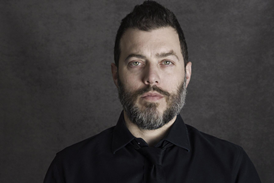



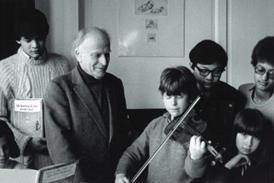




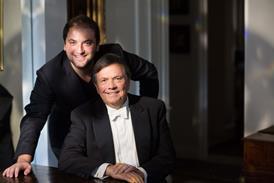
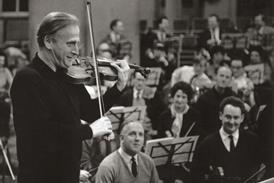
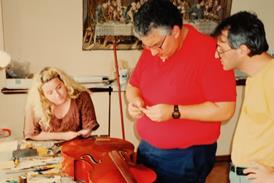













No comments yet